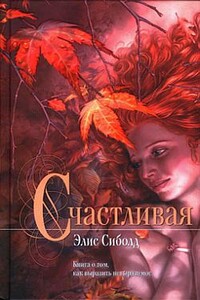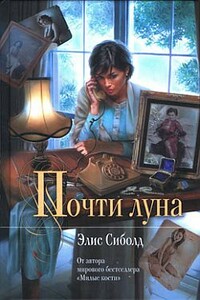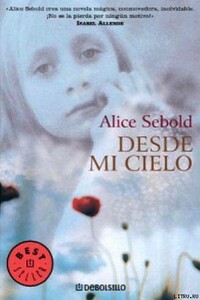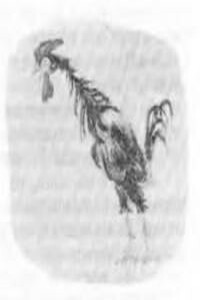“Ray is not feeling well,” his mother said when a detective called his house and asked to speak to him. But they found out what they needed from her. Ray nodded to her as she repeated the policeman’s questions to her son. Yes, he had written Susie Salmon a love note. Yes, he had put it in her notebook after Mr. Botte had asked her to collect the pop quiz. Yes, he had called himself the Moor.
Ray Singh became the first suspect.
“That sweet boy?” my mother said to my father.
“Ray Singh is nice,” my sister said in a monotone at dinner that night.
I watched my family and knew they knew. It was not Ray Singh.
The police descended on his house, leaning heavily on him, insinuating things. They were fueled by the guilt they read into Ray’s dark skin, by the rage they felt at his manner, and by his beautiful yet too exotic and unavailable mother. But Ray had an alibi. A whole host of nations could be called to testify on his behalf. His father, who taught postcolonial history at Penn, had urged his son to represent the teenage experience at a lecture he gave at the International House on the day I died.
At first Ray’s absence from school had been seen as evidence of his guilt, but once the police were presented with a list of forty-five attendees who had seen Ray speak at “Suburbia: The American Experience,” they had to concede his innocence. The police stood outside the Singh house and snapped small twigs from the hedges. It would have been so easy, so magical, their answer literally falling out of the sky from a tree. But rumors spread and, in school, what little headway Ray had made socially was reversed. He began to go home immediately after school.
All this made me crazy. Watching but not being able to steer the police toward the green house so close to my parents, where Mr. Harvey sat carving finials for a gothic dollhouse he was building. He watched the news and scanned the papers, but he wore his own innocence like a comfortable old coat. There had been a riot inside him and now there was calm.
I tried to take solace in Holiday, our dog. I missed him in a way I hadn’t yet let myself miss my mother and father, my sister and brother. That way of missing would mean that I had accepted that I would never be with them again; it might sound silly but I didn’t believe it, would not believe it. Holiday stayed with Lindsey at night, stood by my father each time he answered the door to a new unknown. Gladly partook of any clandestine eating on the part of my mother. Let Buckley pull his tail and ears inside the house of locked doors.
There was too much blood in the earth.
On December fifteenth, among the knocks on the door that signaled to my family that they must numb themselves further before opening their house to strangers – the kind but awkward neighbors, the bumbling but cruel reporters – came the one that made my father finally believe.
It was Len Fenerman, who had been so kind to him, and a uniform.
They came inside, by now familiar enough with the house to know that my mother preferred them to come in and say what they had to say in the living room so that my sister and brother would not overhear.
“We’ve found a personal item that we believe to be Susie’s,” Len said. Len was careful. I could see him calculating his words. He made sure to specify so that my parents would be relieved of their first thought – that the police had found my body, that I was, for certain, dead.
“What?” my mother said impatiently. She crossed her arms and braced for another inconsequential detail in which others invested meaning. She was a wall. Notebooks and novels were nothing to her. Her daughter might survive without an arm. A lot of blood was a lot of blood. It was not a body. Jack had said it and she believed: Nothing is ever certain.
But when they held up the evidence bag with my hat inside, something broke in her. The fine wall of leaden crystal that had protected her heart – somehow numbed her into disbelief – shattered.
“The pompom,” Lindsey said. She had crept into the living room from the kitchen. No one had seen her come in but me.





